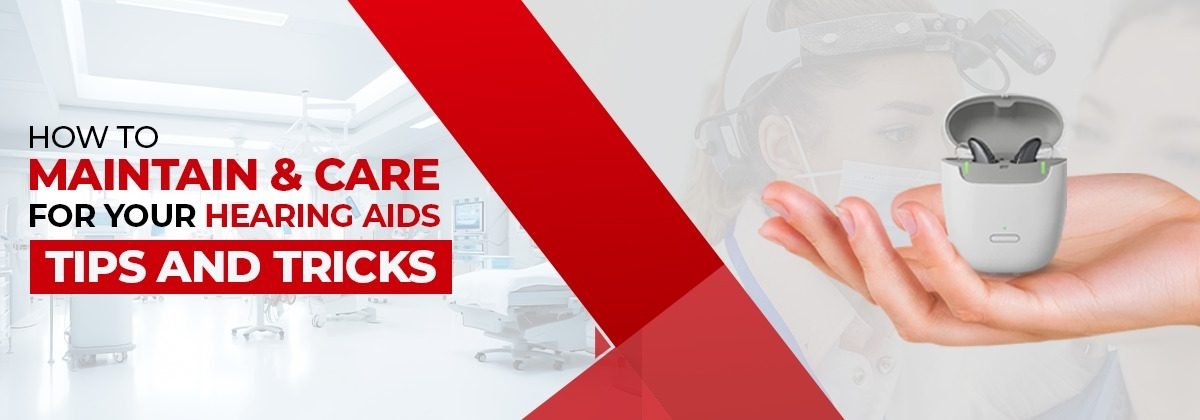- Have any questions?
- +91 474 2769177
- +91 90722 72277
- jk.hgaids@gmail.com
How to Maintain and Care for Your Hearing Aids: Tips and Tricks

What is the Average Life Expectancy of Hearing Aids 2024?
February 5, 2024Taking care of your hearing aids is essential to ensure they work well and last a long time. Proper maintenance not only improves the performance of your hearing aids but also extends their lifespan. Here are some simple tips and tricks to help you keep your hearing aids in great condition.
Keep Your Hands Clean
Wash your hands before handling your hearing aids. Clean hands prevent dirt and oils from transferring to your devices, which can cause damage over time.
Handle with Care
Your hearing aid is delicate, so treat it gently. To avoid drops or damage, use a protective cover or clip. This small step can prevent many accidents and keep your hearing aid safe.
Daily Cleaning Routine
Clean your hearing aids daily. Use a soft, dry cloth to wipe down the interior and exterior parts. A cleaning tool or kit can help you reach difficult areas, preventing earwax and debris buildup that can affect performance.
Remove Batteries at Night
Take out the batteries from your hearing aids at night. This extends battery life, allows the devices to dry out, and prevents them from being accidentally turned on. It also encourages you to clean the battery compartment and contacts regularly.
Protect from Moisture
Avoid moisture. Don’t wear your hearing aids in the shower, sauna, while swimming, or when using a hair dryer or hair spray. Using a dehumidifier can help keep your hearing aids dry and ready for use each day. Place the instrument in a dehumidifier overnight and remove the battery to keep it dry and in good condition.
Have Spare Parts on Hand
Keep spare components like batteries, tubing, wax guards, and filters on hand. Regularly replacing these parts ensures your hearing aids function properly. Replace them when they show signs of dirt, clogging, or wear.
Regular Checkups
Schedule regular checkups with your audiologist two to four times a year. During these visits, your audiologist will professionally clean your devices and perform tests to ensure they are working optimally.
Troubleshooting
If your hearing aids aren’t working correctly, try some troubleshooting at home. Remove and replace the battery, clean the battery compartment, check all settings, reinsert the device, and replace tubing and wax filters. These simple steps can often fix minor issues.
Consult Your Audiologist
If problems persist, schedule an appointment with your audiologist. They can adjust the programming and settings to ensure you get the most out of your hearing aids.
Know Your Warranty
Understand the terms of your warranty. If your warranty is about to expire, schedule a checkup to address any problems before the coverage ends.
Explore Accessories
If you face difficulties hearing in certain situations, talk to your audiologist about accessories. Special programming techniques or hearing aid accessories can provide effective solutions to your hearing concerns.
Stay Updated with Technology
Stay updated with the latest advancements in hearing aid technology. Investing in newer devices and accessories is often worthwhile for better performance.
By following these straightforward tips, you can ensure your hearing aids remain in excellent condition, providing you with clear and reliable hearing every day. Proper care and maintenance are key to enjoying the full benefits of your hearing aids.


